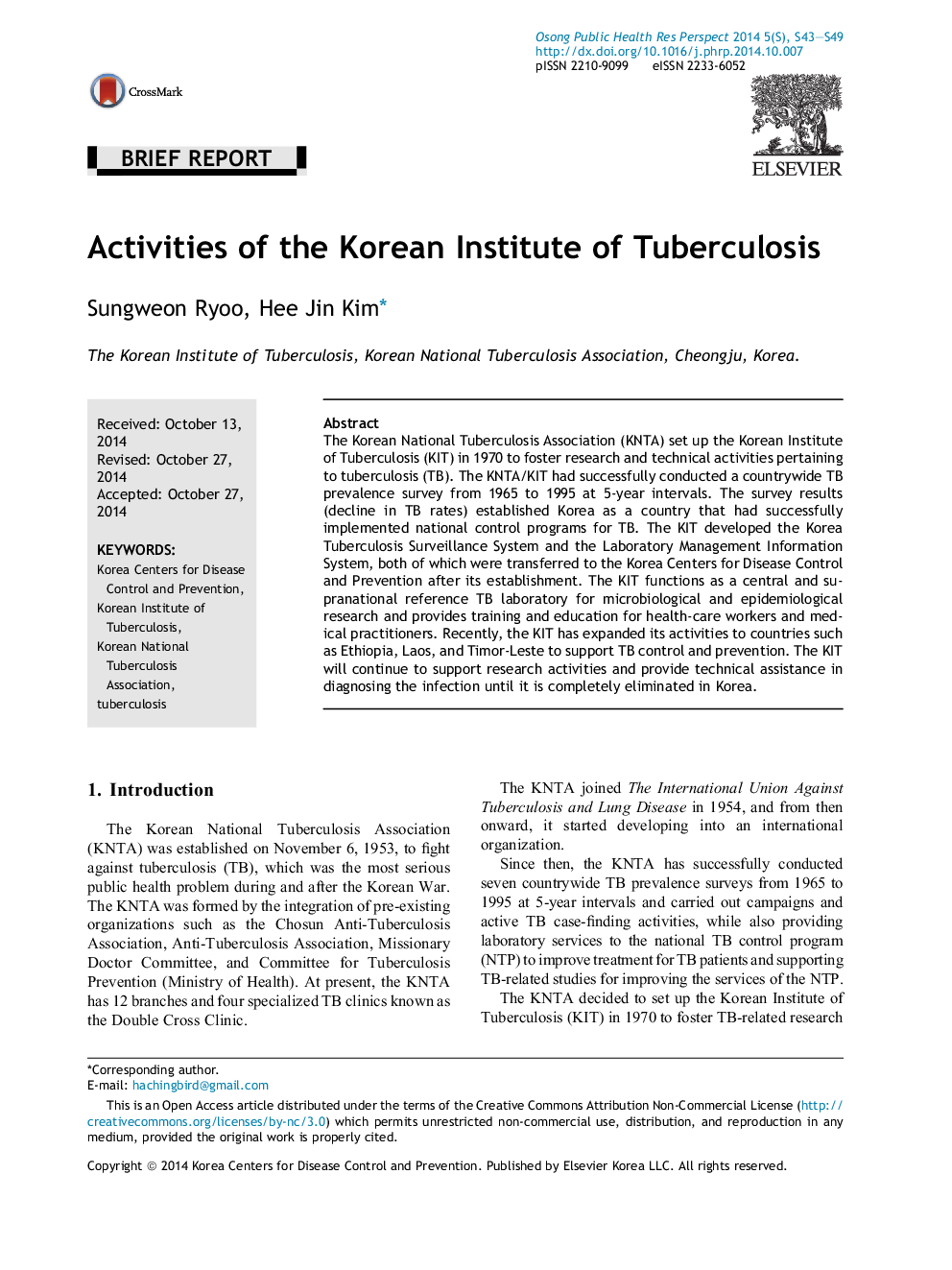| Article ID | Journal | Published Year | Pages | File Type |
|---|---|---|---|---|
| 4202159 | Osong Public Health and Research Perspectives | 2014 | 7 Pages |
The Korean National Tuberculosis Association (KNTA) set up the Korean Institute of Tuberculosis (KIT) in 1970 to foster research and technical activities pertaining to tuberculosis (TB). The KNTA/KIT had successfully conducted a countrywide TB prevalence survey from 1965 to 1995 at 5-year intervals. The survey results (decline in TB rates) established Korea as a country that had successfully implemented national control programs for TB. The KIT developed the Korea Tuberculosis Surveillance System and the Laboratory Management Information System, both of which were transferred to the Korea Centers for Disease Control and Prevention after its establishment. The KIT functions as a central and supranational reference TB laboratory for microbiological and epidemiological research and provides training and education for health-care workers and medical practitioners. Recently, the KIT has expanded its activities to countries such as Ethiopia, Laos, and Timor-Leste to support TB control and prevention. The KIT will continue to support research activities and provide technical assistance in diagnosing the infection until it is completely eliminated in Korea.
